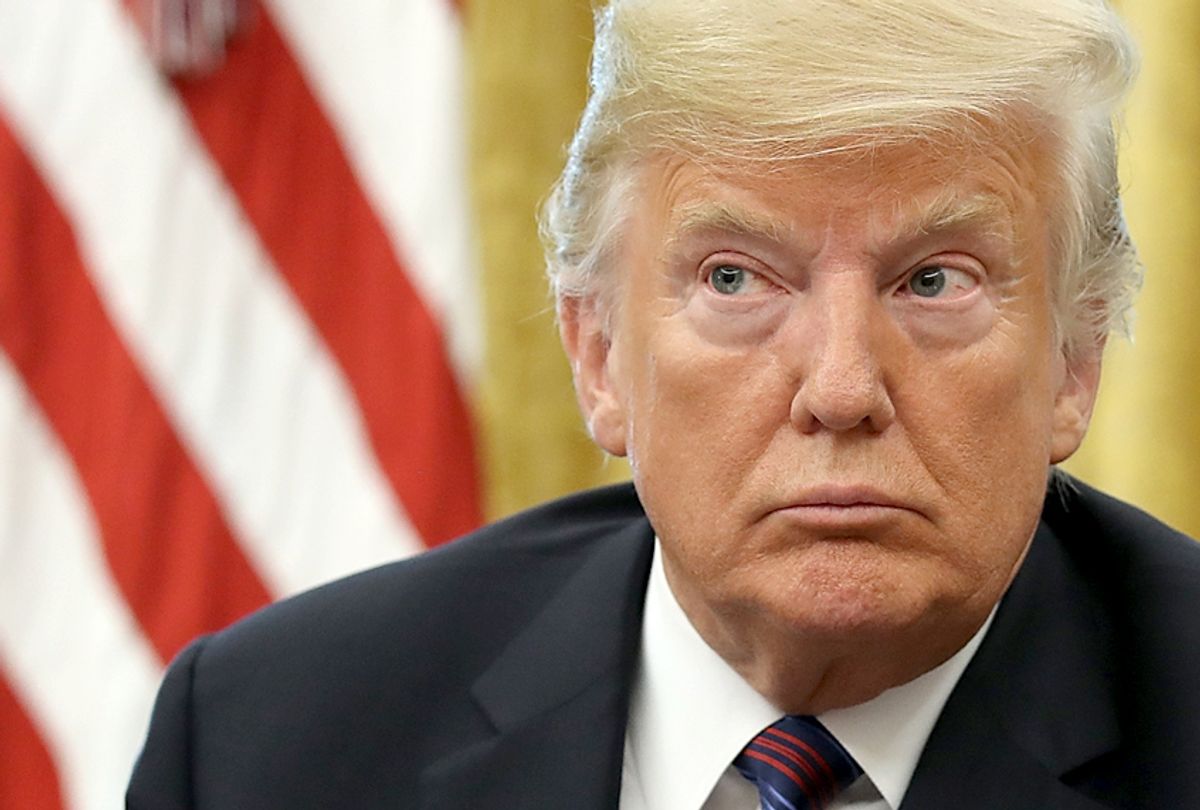President Donald Trump has told congressional leaders Thursday that he is cancelling a planned pay raise most civil federal workers were due to receive in January, citing budget constraints.
In a letter to House and Senate leaders, Trump said the pay increases would cost $25 billion, which he called "inappropriate."
"We must maintain efforts to put our nation on a fiscally sustainable course, and federal agency budgets cannot sustain such increases," Trump wrote.
The president said he is determined that, for 2019, "both across the board pay increases and locality pay increases will be set at zero." Under current law, most federal workers would have received an average of a 2.1 percent raise in 2019 plus locality pay increases, which average 25.7 percent and cost roughly $25 million in total, the president said.
Trump also emphasized the pay changes would not affect the federal government's ability to attract qualified workers, and he wrote that the government would focus on "recruiting, retaining and rewarding high-performing Federal employees and those with critical skill sets." The federal pay freeze would be effective January 1.
The decision affects federal workers covered by the General Schedule, which includes more than 70 percent of the federal workforce. Military members were on track to receive a 2.6. percent raise in 2019, the Military Times reported.
As Federal News Radio reporter Nicole Ogrysko notes, "News of Trump's intention to freeze federal pay isn't surprising, considering his 2019 budget proposal recommended a pay freeze for the next year. Thursday's announcement, which codifies the president’s decision on federal pay, is an announcement that each administration must make by Aug. 31 every year."
Ogrysko also mentioned that "Congress could also change the president's course and pass stand-alone legislation on federal pay, but this would be unlikely. Rep. Gerry Connolly (D-Va.) and Sen. Brian Schatz (D-Hawaii) have again re-introduced the Federal Adjustment of Income Rates (FAIR) Act in January. The bill calls for a 3 percent raise for federal employees next year."
Connolly on Thursday criticized Trump's decision to implement a pay freeze.
"When President Kennedy spoke of the nobility of public service, he did so out of a belief that our country is made stronger by a federal government people can depend on and for which people want to work," Connolly said in a statement. "For President Trump, the federal workforce is just a punching bag."
National Treasury Employees Union, a labor union that represents nearly 200,000 government employees, also scrutinized the decision. "This is a deeply disappointing action and one more indication that this administration, in this economic environment, simply does not respect its own workforce," NTEU President Tony Reardon said in a statement.
"It is [our] intent to continue working in Congress to secure a pay raise for the middle-class employees who serve this country every day as part of the federal workforce," Reardon added. "They have already endured years of little to no increases and their paychecks cannot stretch any further as education, health care costs, gas and other goods continue to get more expensive."
Trump is not the only president in modern history to propose a pay freeze for federal workers. During his time in the Oval Office, former President Barack Obama ordered three years of pay freezes in 2011, 2012 and 2013.
Most federal employees received a raise averaging 1.9 percent in 2018.



Shares